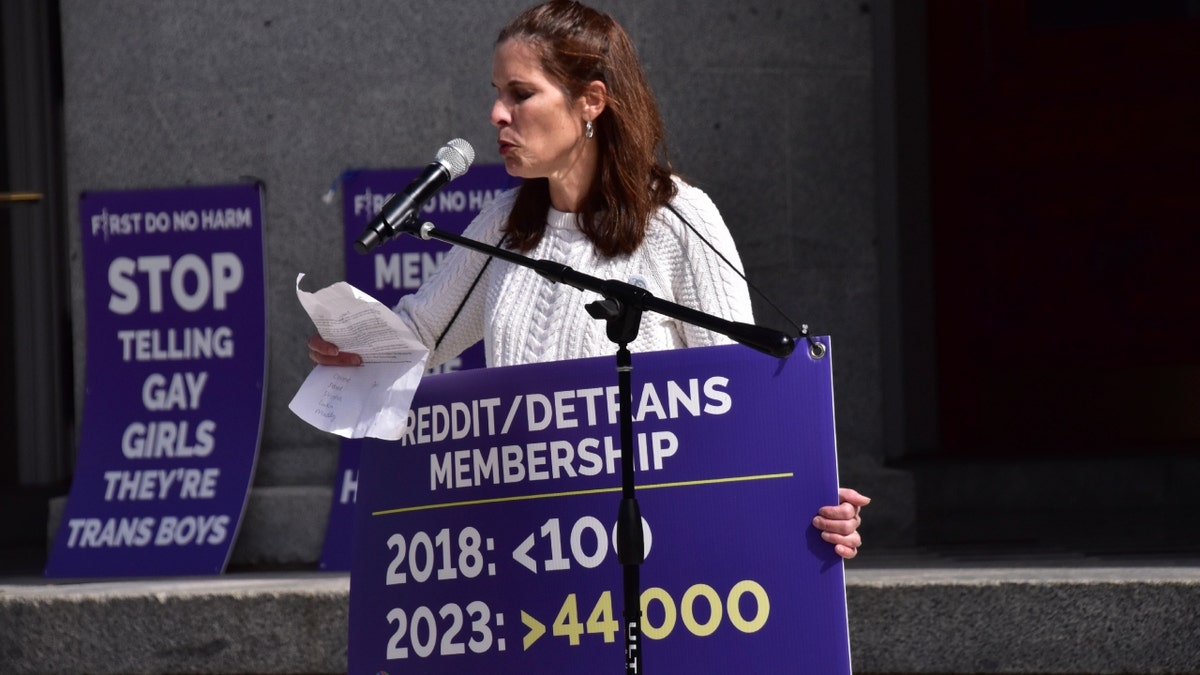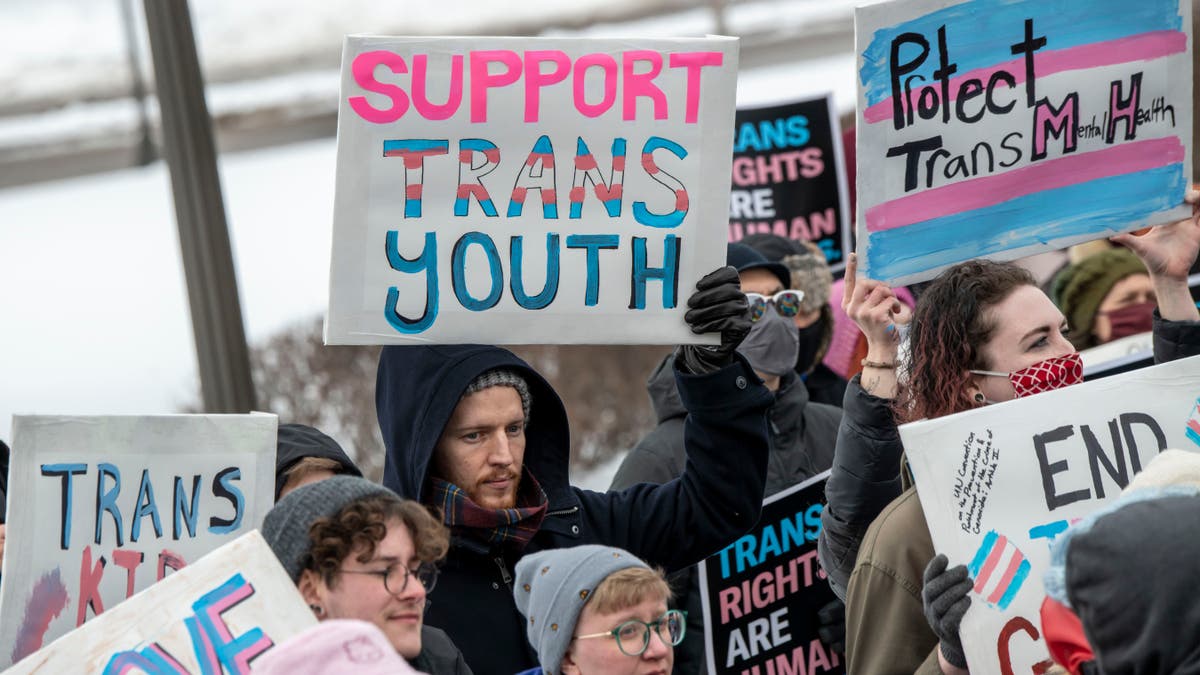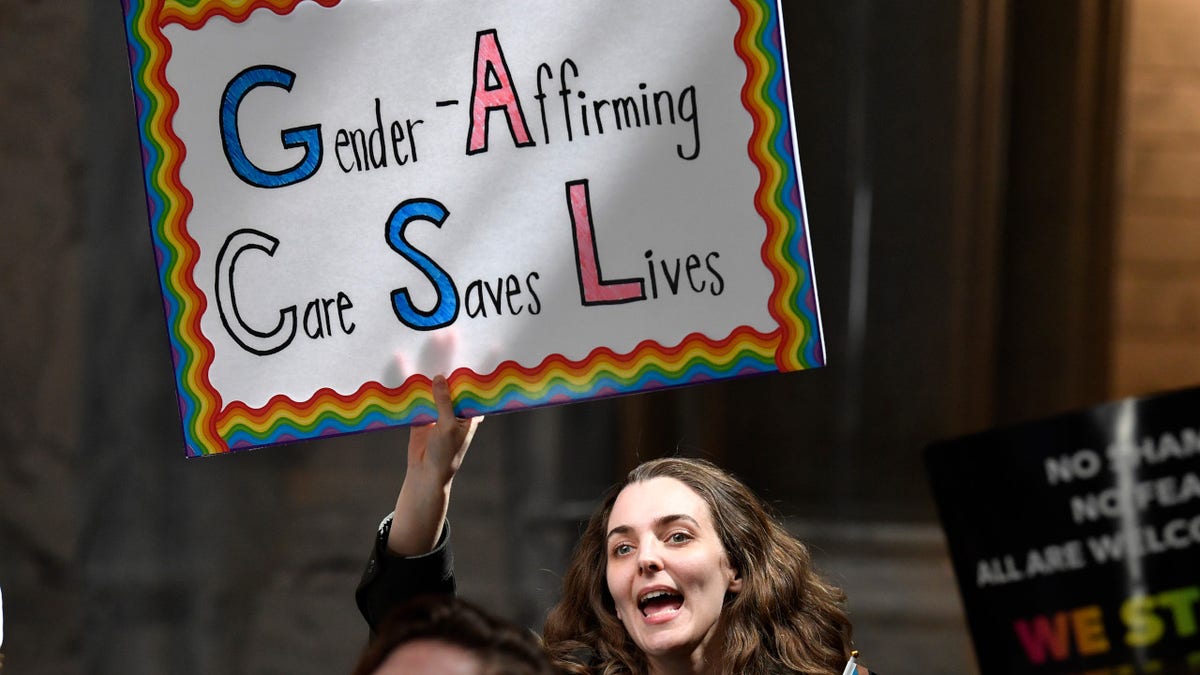Crenshaw grills Dem witness over failure to name one study citing benefits of surgeries for trans minors
Texas Republican Rep. Dan Crenshaw tore into a Democrat witness Wednesday over her inability to cite a medical study that states the benefits of transgender surgeries for minors.
Several countries in Europe are now discouraging giving puberty blockers to children as the "outlier" U.S. continues to defend the treatment, according to a new report.
The United Kingdoms National Health Service limited the use of puberty blockers for clinical research this month, according to its website, citing "significant uncertainties surrounding the use of hormone treatments."
"We are now going out to targeted stakeholder testing on an interim clinical commissioning policy proposing that, outside of a research setting, puberty suppressing hormones should not be routinely commissioned for children and adolescents who have gender incongruence/dysphoria," the UK's NHS website reads.
The U.S. medical community largely believes the science behind transgender medical treatments is settled, according to the Wall Street Journal, writing, "The U.S. is becoming an outlier among many Western nations in the way its national medical institutions treat children suffering from distress over gender identity."

Erin Friday, an attorney and mother a daughter who left a transgender identity, speaks at the Detransition Awareness Day rally in Sacramento on March 10. (Courtesy Pamela Garfield-Jaeger)
INDIANA GOV. HOLCOMB GREENLIGHTS TRANS PROCEDURE BAN FOR MINORS
Delegates at the American Medical Association's annual meeting recently backed a resolution co-sponsored by the American Academy of Pediatrics and others that renewed their support for treatments such as puberty blockers, the outlet reported.
Countries such as Canada, Australia and Spain still allow puberty blockers, according to the Journal, but some are sounding the alarm.
The president of the Italian Psychoanalytic Society wrote a letter to Italy's prime minister Giorgia Meloni in January about having "serious concerns" over the use of puberty blockers.
GOP lawmakers repeatedly cited European studies during a recent congressional hearing, including Texas Republican Rep. Dan Crenshaw, who demanded answers from Yale School of Medicine assistant professor Meredithe McNamara, a Democratic witness, about studies that support these treatments for minors.

Protestors supporting trans-identifying minors during a rally in Minnesota. (Michael Siluk/UCG/Universal Images Group via Getty Images)
WORLD ATHLETICS TO EXCLUDE TRANSGENDER FEMALE ATHLETES FROM WOMEN'S COMPETITIONS
"If you're doing a therapy, and it's, you know, temporary, fine, whatever, maybe let's try it and see if it works," he continued. "But when you're talking about permanent physiological changes, do you not agree, just from an ethical standpoint, that you might want extremely strong evidence of the benefits? There's no systematic review that states that there's strong evidence of benefits."
"Sir, are you aware of how the quality evidence grading system works and how it's applied?" McNamara responded, failing to name specific studies after the two went back and forth.
"You're not telling me any study, don't say 'standards of care,'" Crenshaw said. "Tell me one."

A pro-gender affirming care activist protests Kentucky Senate bill SB150, known as the Transgender Health Bill outside the Senate chamber at the Kentucky State Capitol in Frankfort, Ky., Wednesday, March 29, 2023. (AP Photo/Timothy D. Easley) (AP Photo/Timothy D. Easley)
"So, um, the standards of care," McNamara said.
"The standards of care," Crenshaw questioned. "That's not a journal, that's not a study. That's not an organization. That's not an institution. You're just saying words. Name one study."
Several states have enacted laws banning the use of puberty blockers for minors. A judge in Indiana recently blocked a law prohibiting puberty blockers and hormone treatments for children that was set to take effect on July 1.
Fox News' Kyle Morris contributed to this report.


